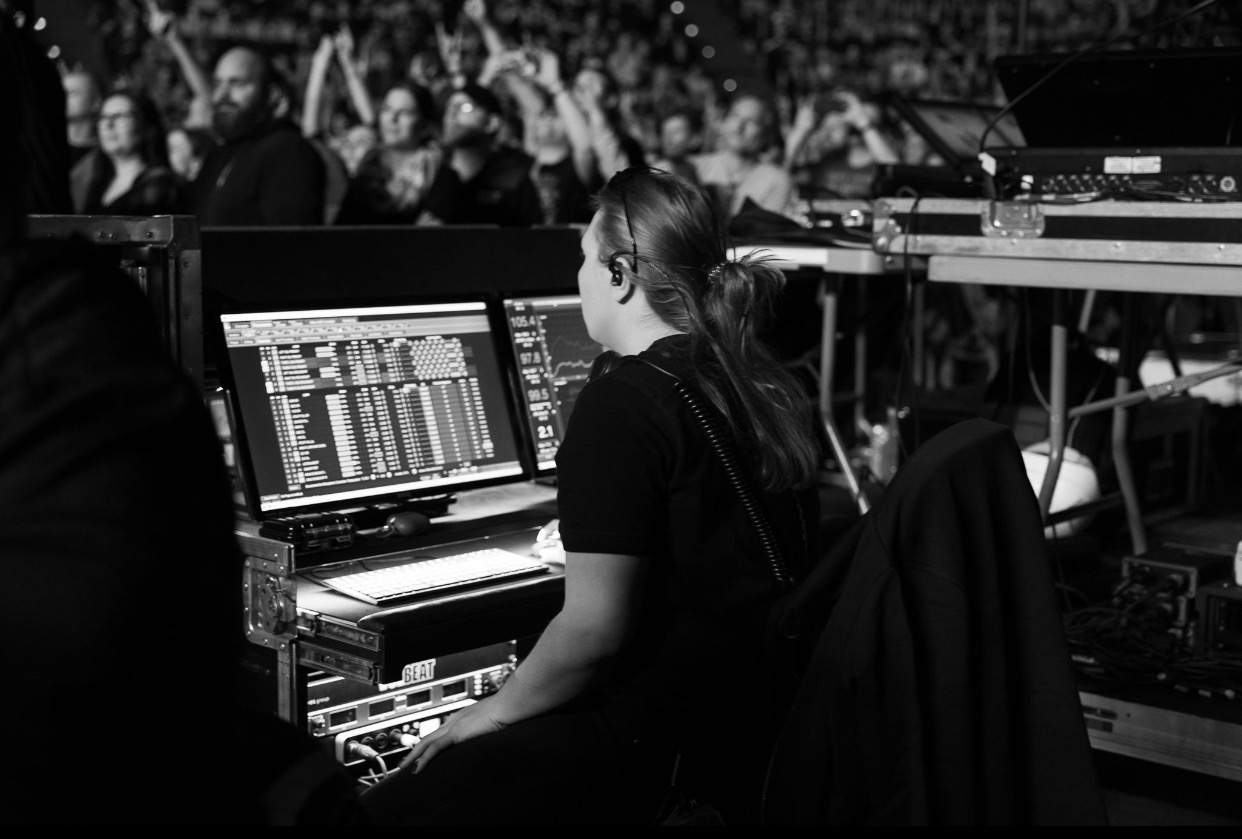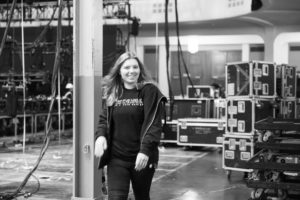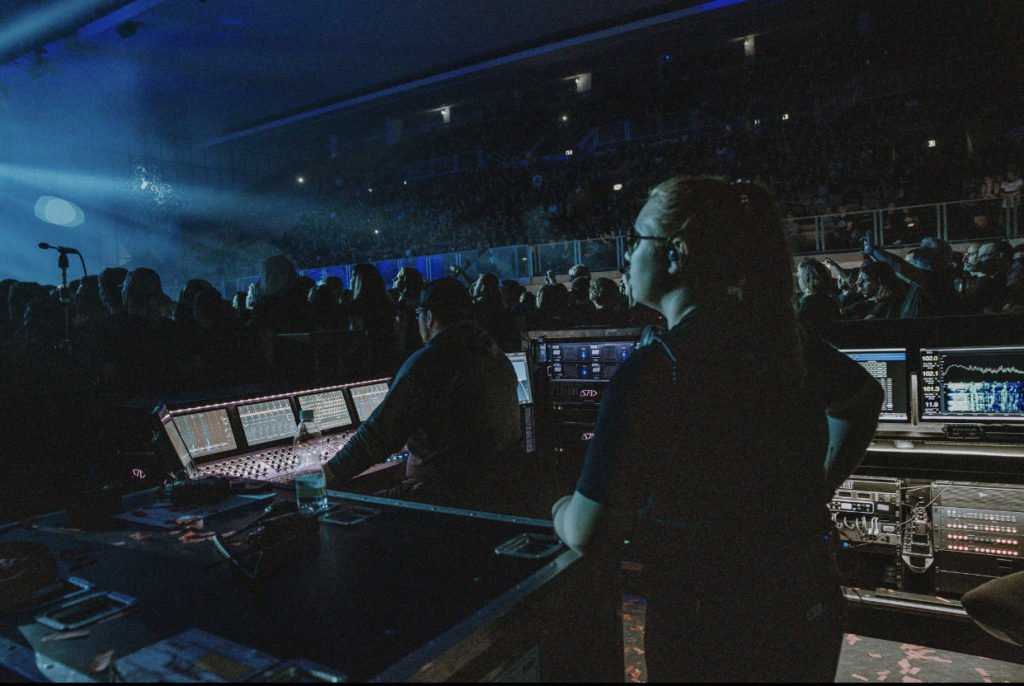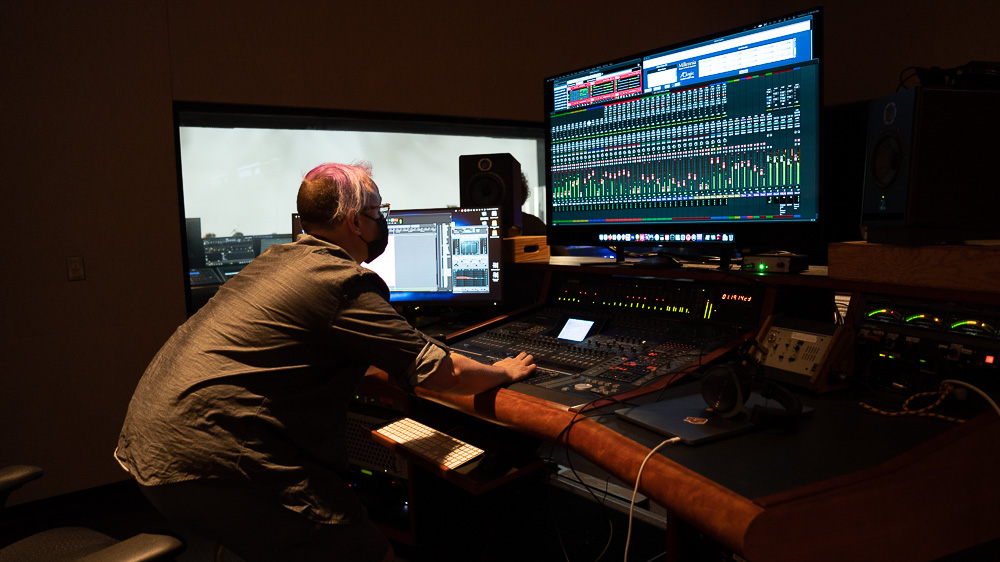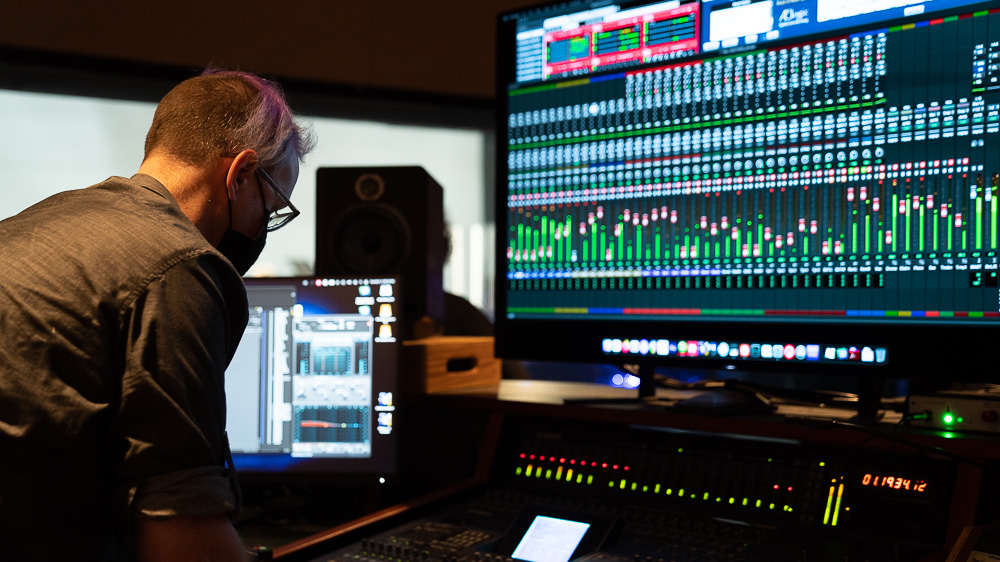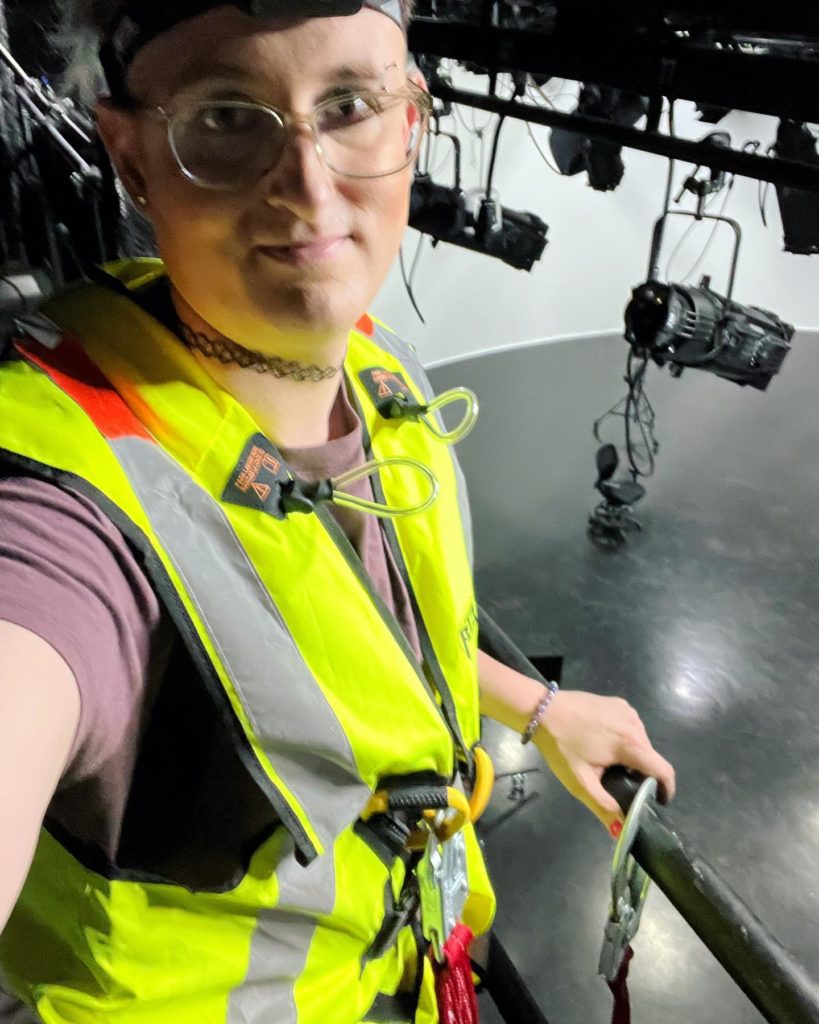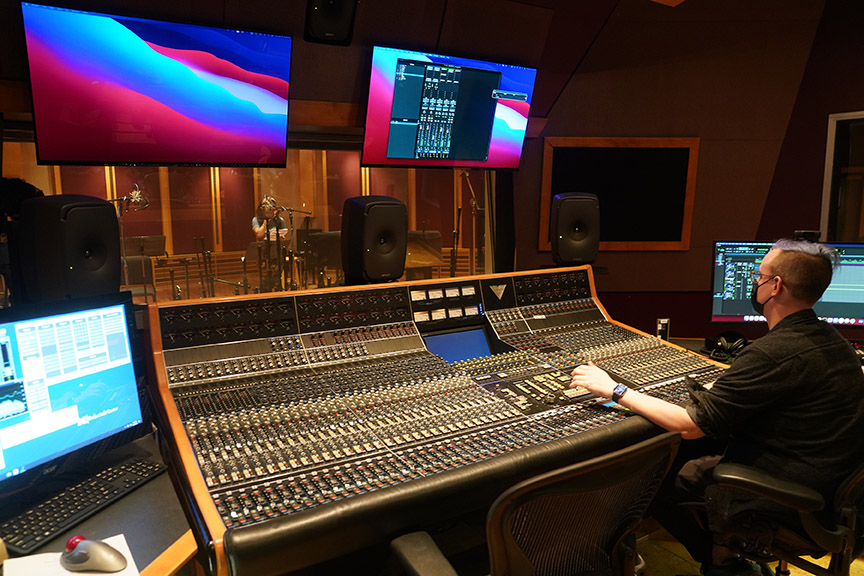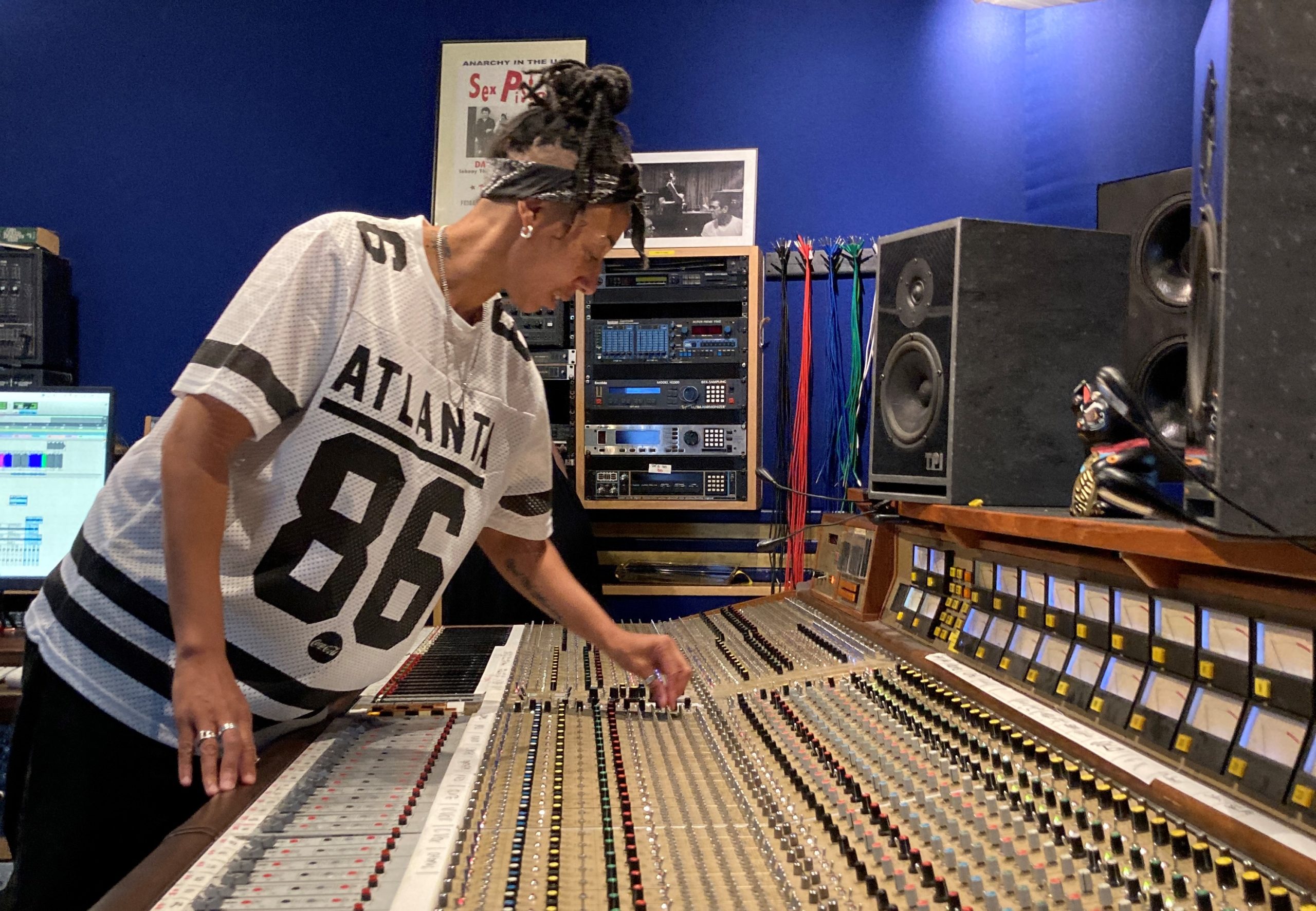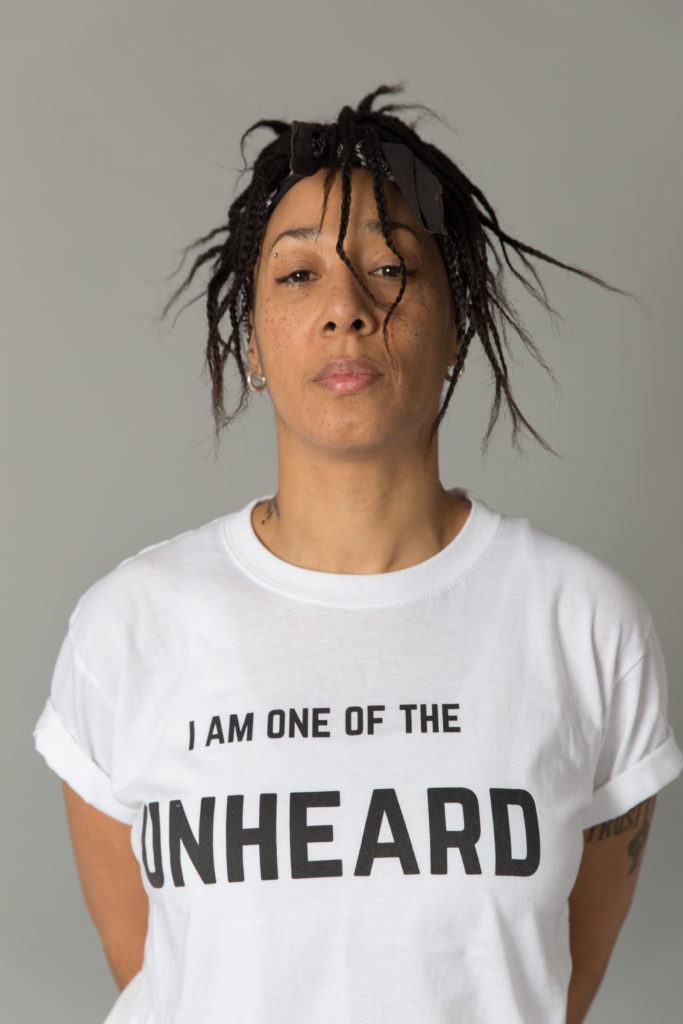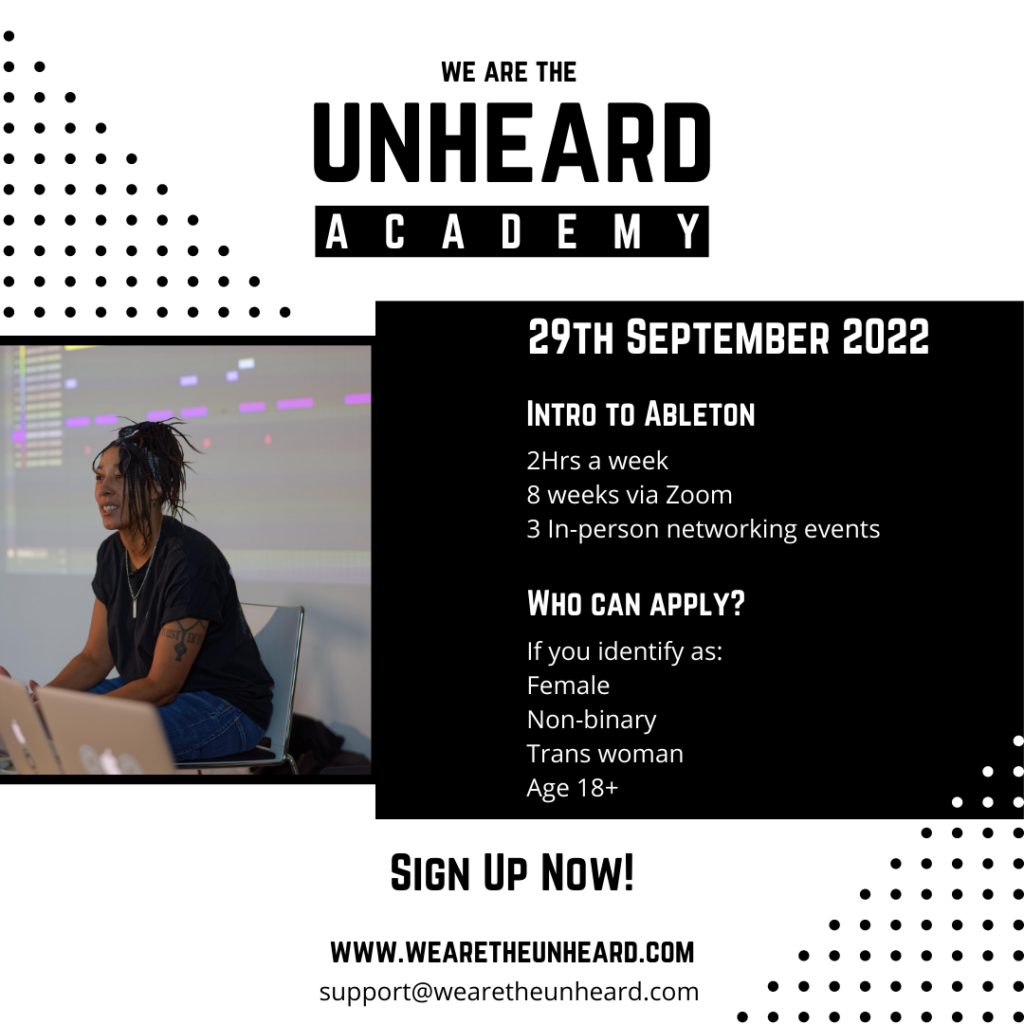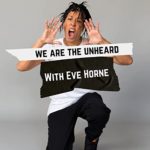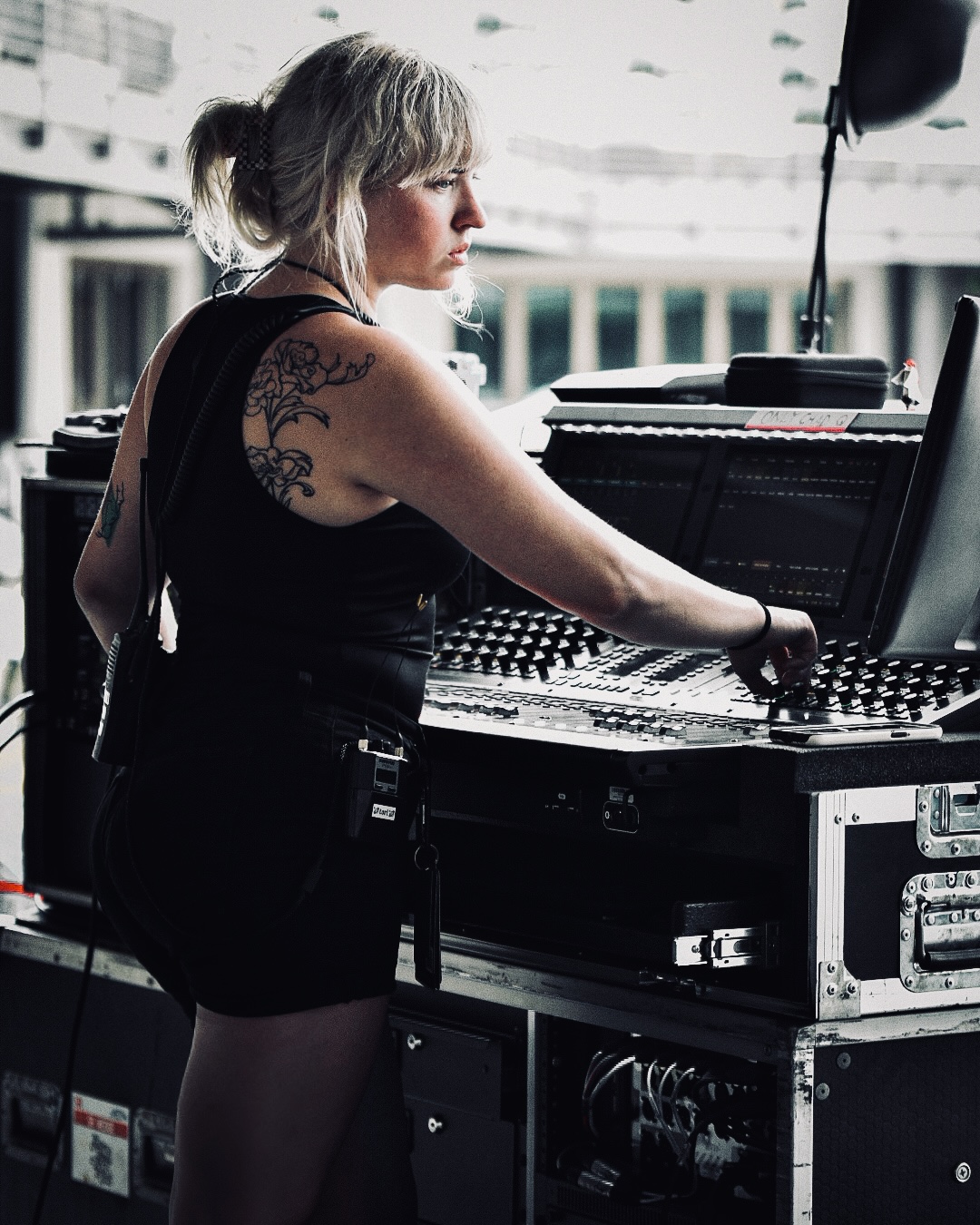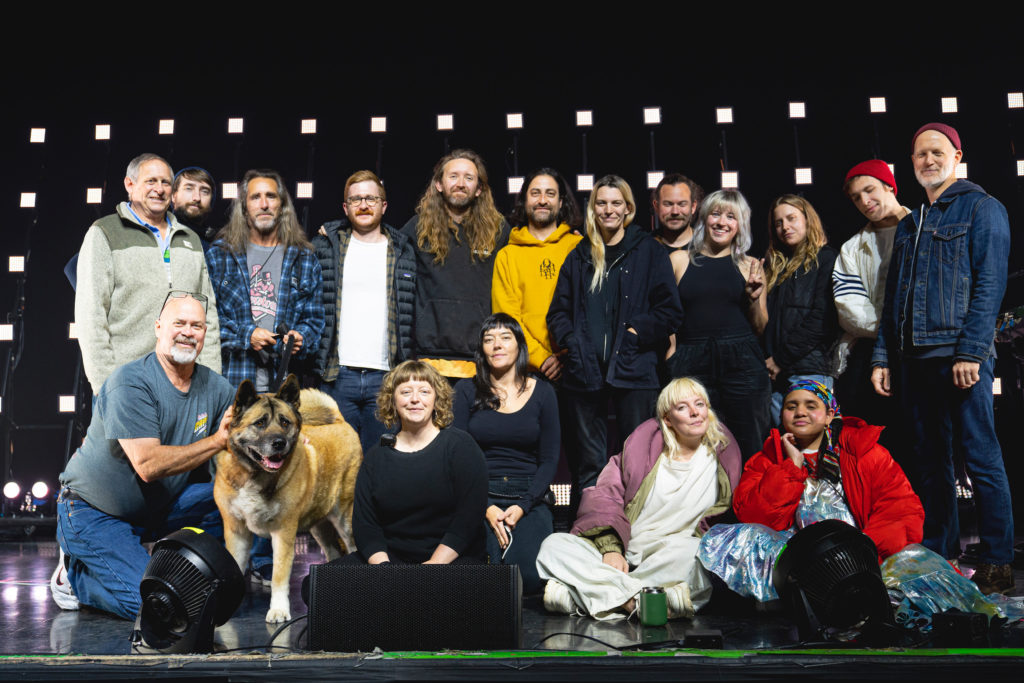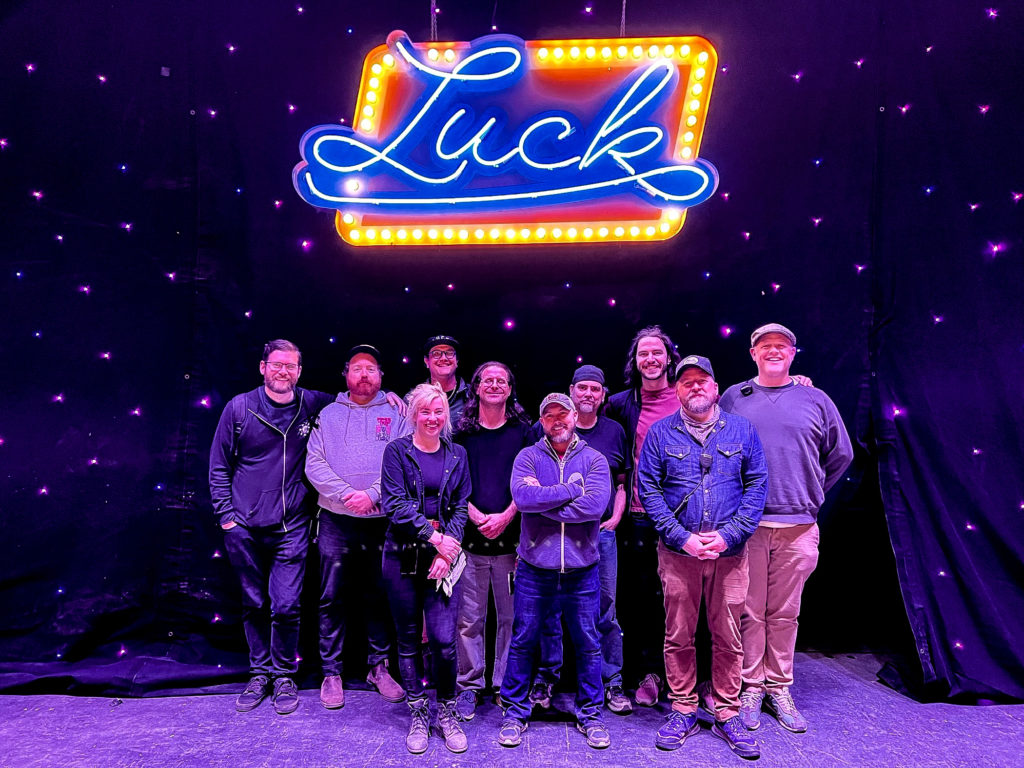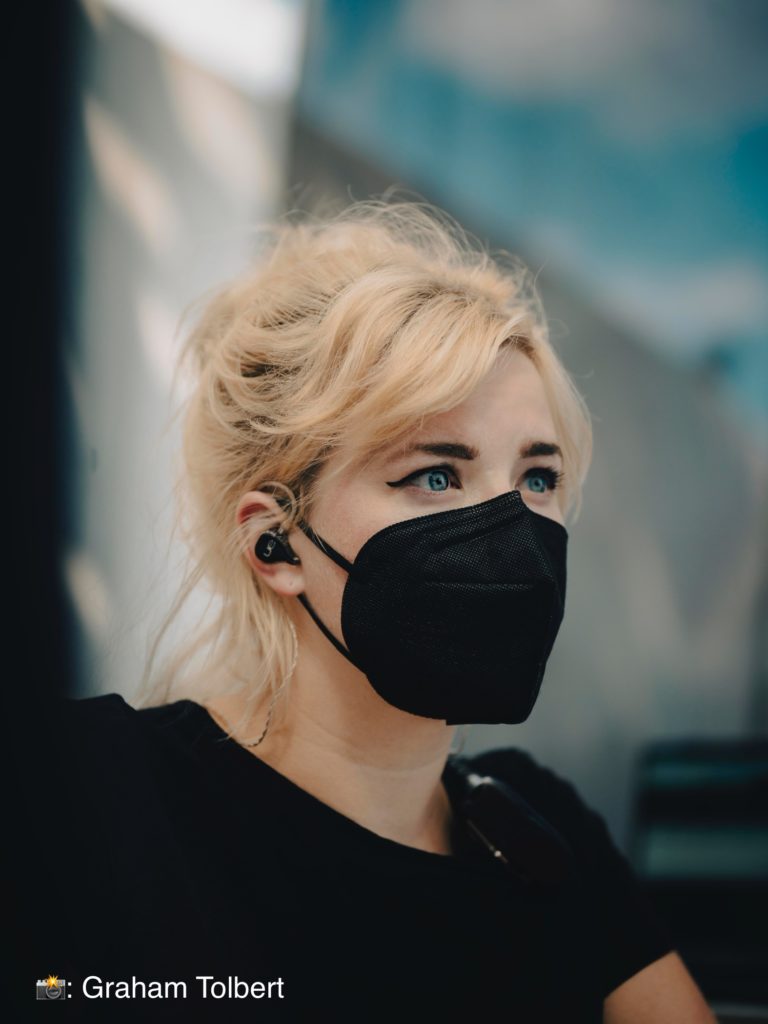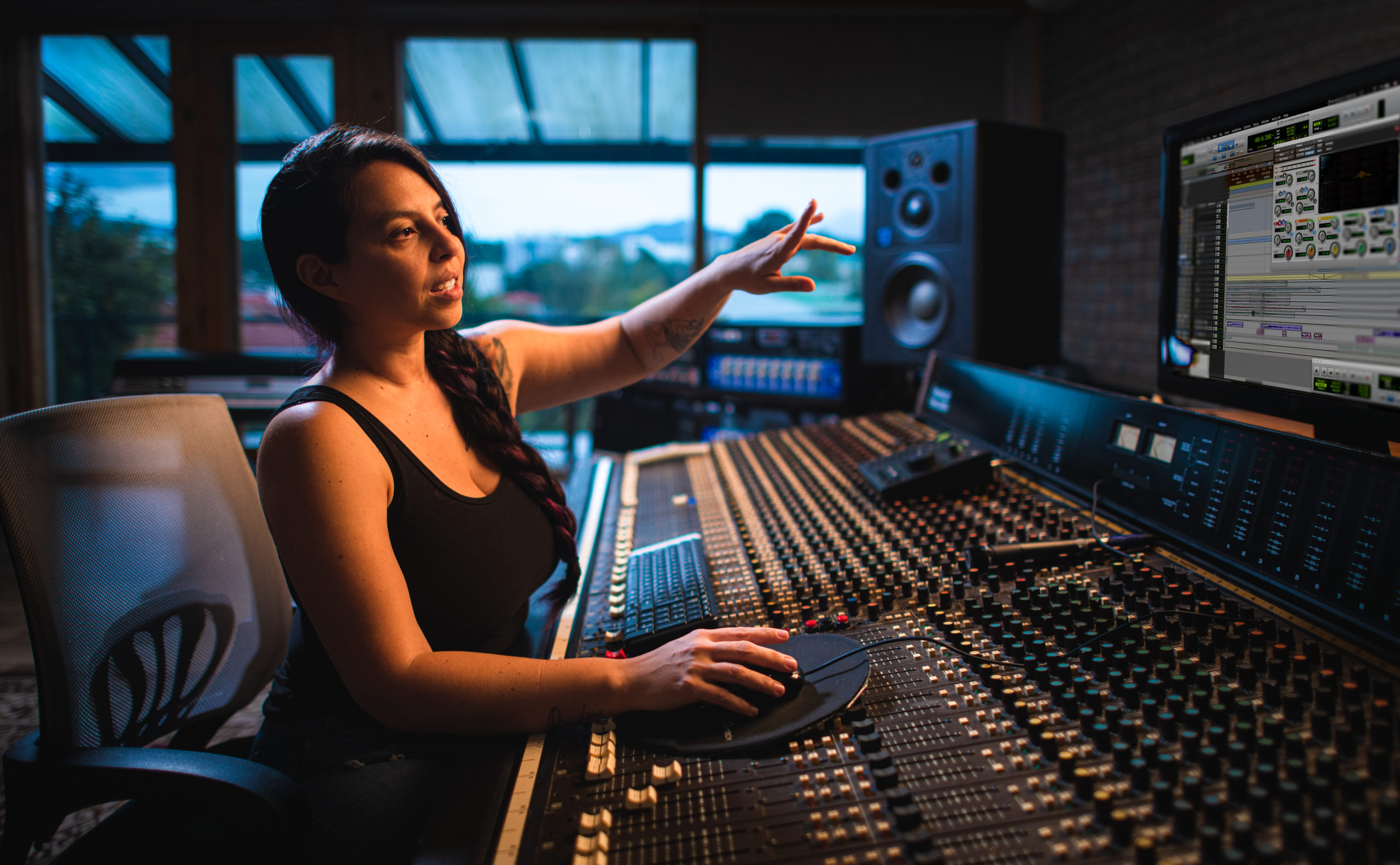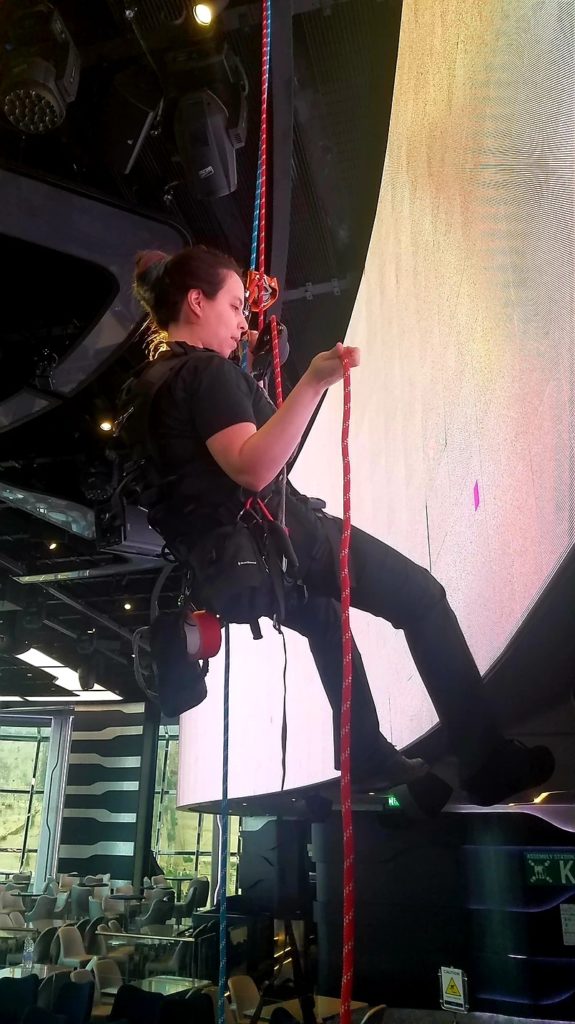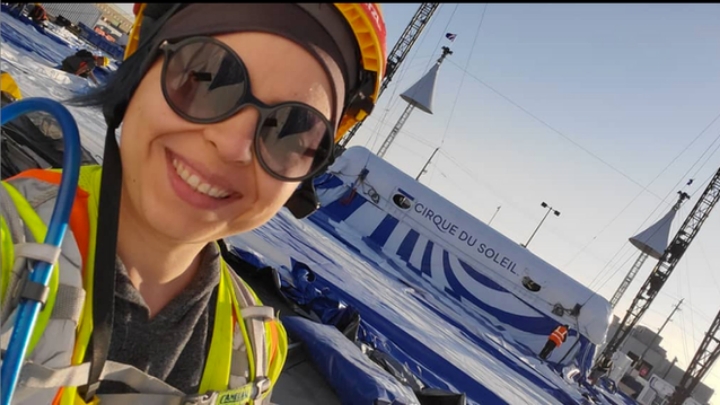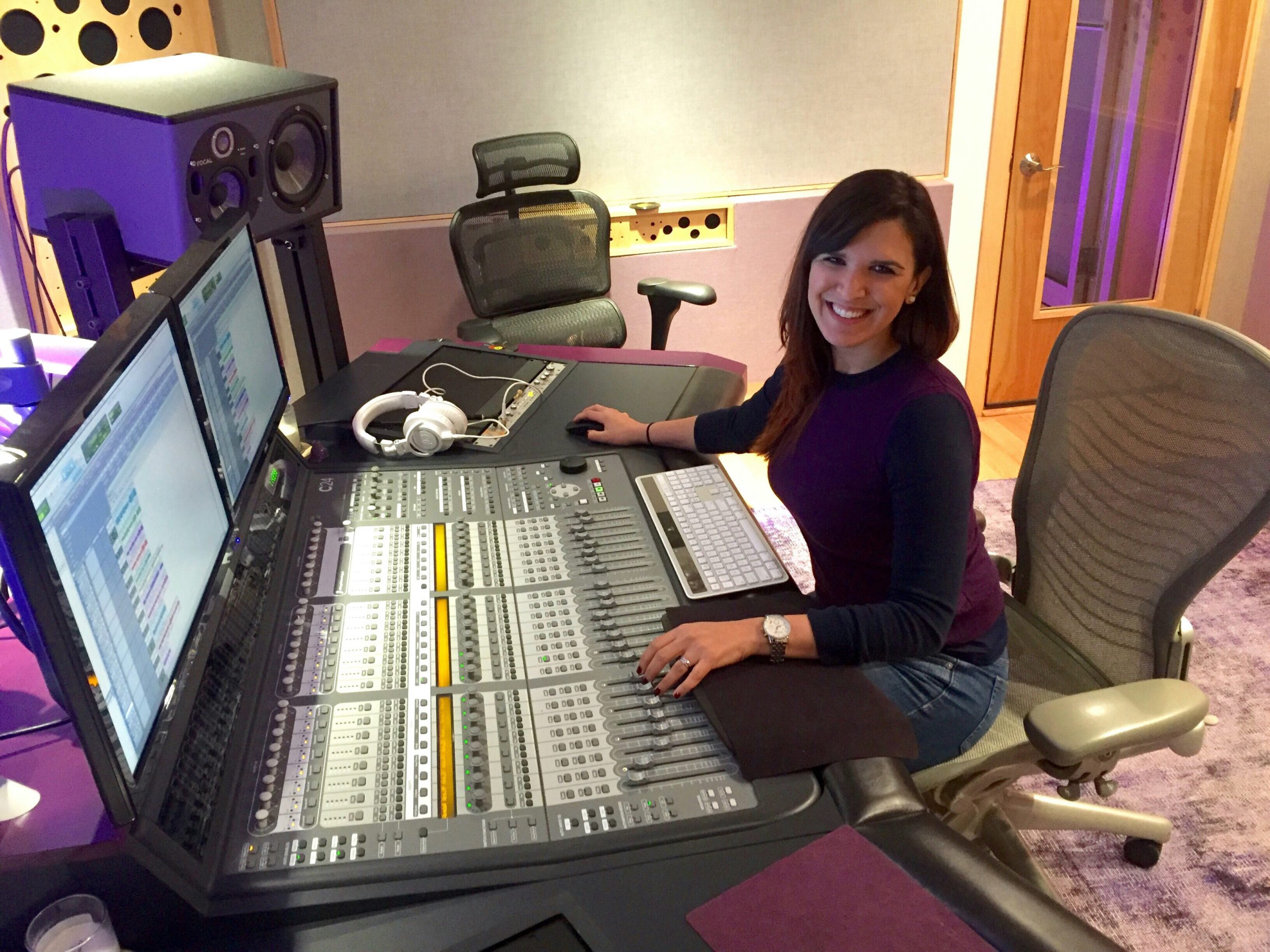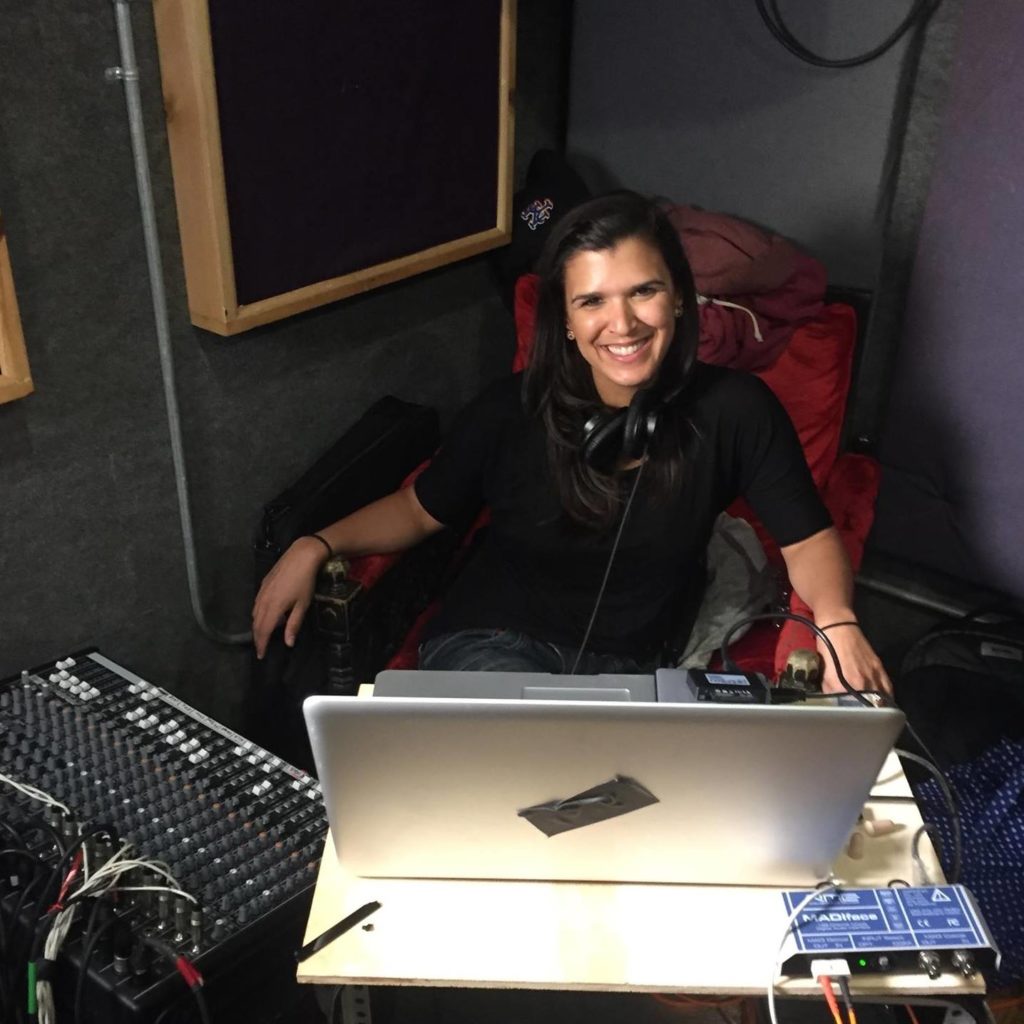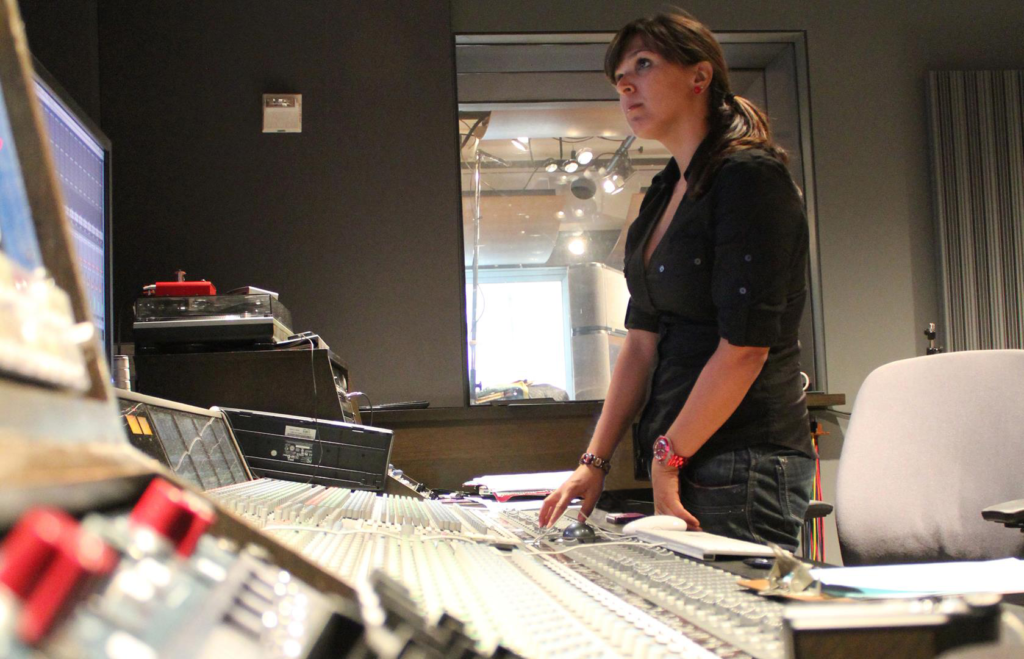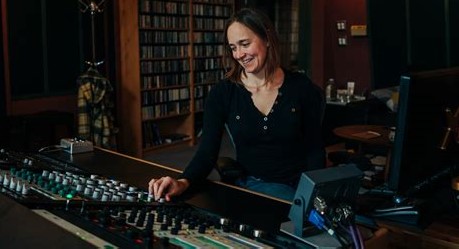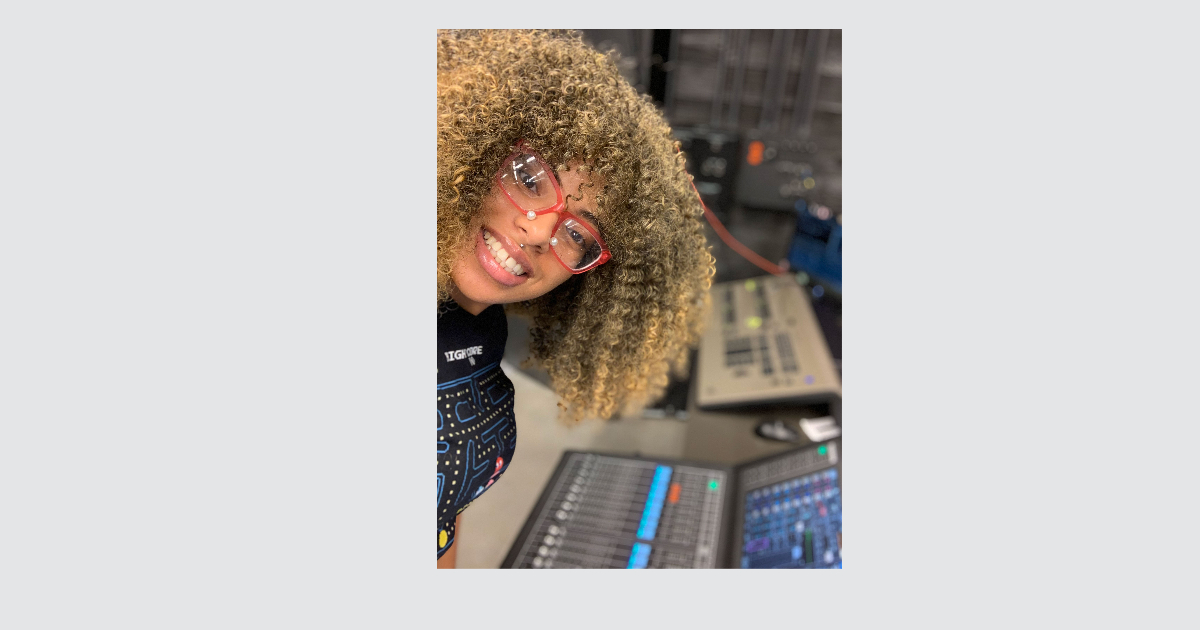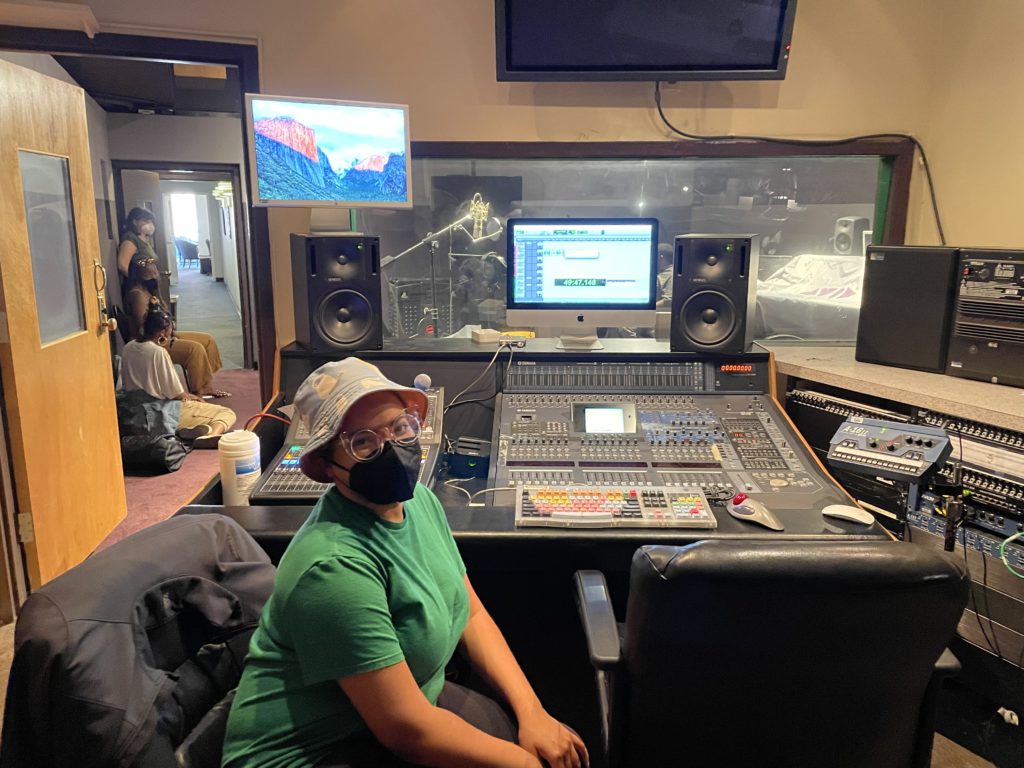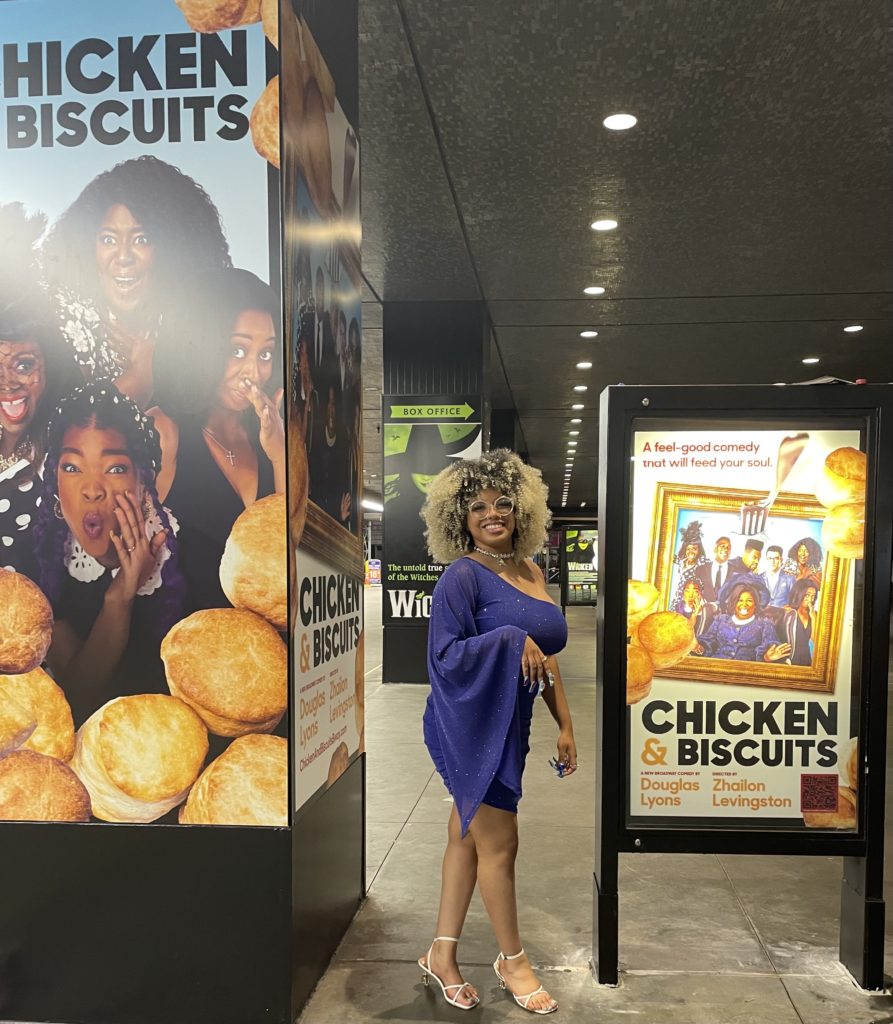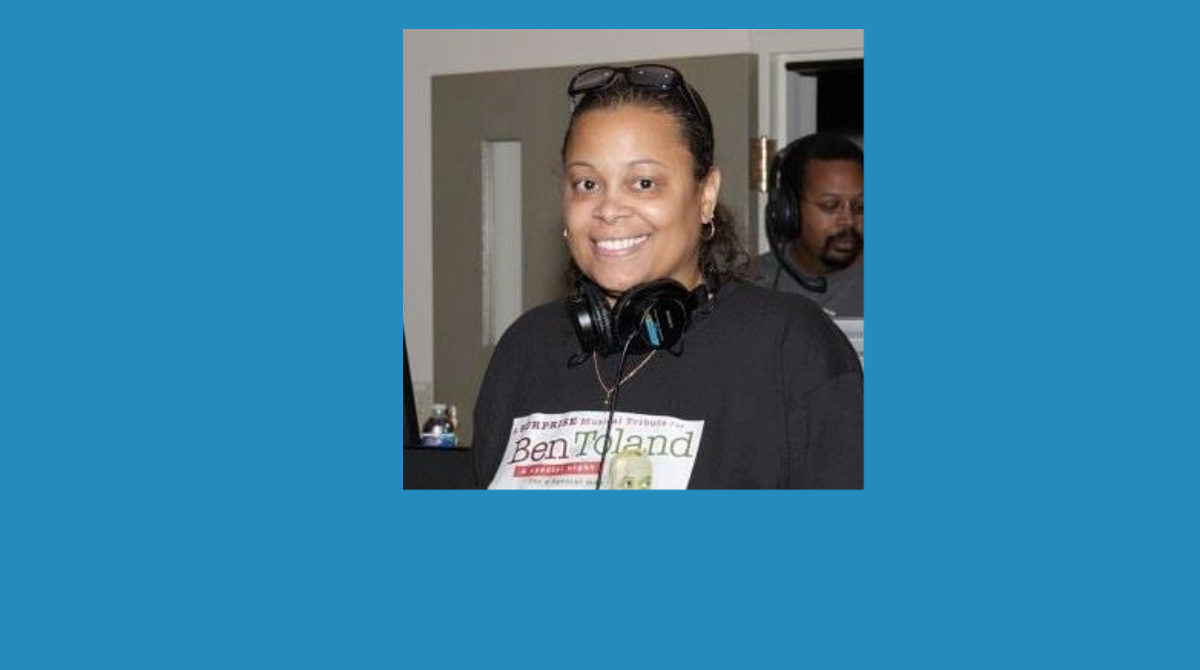“If underrepresented people trying to get into any industry—or neighborhood, or anything else for that matter—allow that type of [discriminatory] environment, it’s going to be an unwelcoming environment. If you allow it to push you out and not pursue it, the representation will never improve…I stayed until this point, a year from now I might be like, ‘F*** that, it’s too hard.’ On that note, I can’t fault anybody for not sticking it out. It can be really brutal, but it’s also super rewarding.”
-Rachel Field
Rachel Field is a co-owner and mastering engineer at Resonant Mastering in Seattle, Washington. In addition to her expertise in mastering, Rachel also has experience (over her 11 years in the industry) working as a recording, mix, and live sound engineer. Rachel’s credits include acts such as Eddie Vedder, Brandi Carlile, Pearl Jam, Thunderpussy, Whitney Mongé, and more.
Career Beginnings
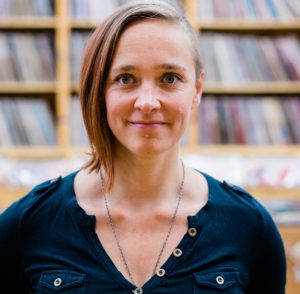 Growing up in a musical family, Rachel was immersed in music from a young age. Until 2009, however, she had not realized that pursuing a career in audio technology was a possibility for her. This changed one day due to an important conversation with a friend. As she puts it:
Growing up in a musical family, Rachel was immersed in music from a young age. Until 2009, however, she had not realized that pursuing a career in audio technology was a possibility for her. This changed one day due to an important conversation with a friend. As she puts it:
“I had been waitressing most of my adult life and was looking for something else to do but was pretty uninspired by other options. Over breakfast, I was having a conversation with a friend of mine who had just come from a recording session. They were describing the techniques the engineer used to mic up the drum kit and at that moment I was like… that’s what I want to do. That sounds amazing. It hadn’t even occurred to me that audio could be a career until that moment.”
Having found her new passion, Rachel began asking her musician friends how one could get into the industry. After some research, she decided to enroll in the audio program at The Art Institute of Seattle (a private, for-profit school that closed in 2019). Still working as a waitress to support herself, Rachel decided to go to school part-time so that she could manage work and classes.
Once in school, Rachel quickly began pursuing professional audio work. She was able to break into the industry by partnering up with a friend, saying yes to as many opportunities as she could, and networking. She explains this in detail below.
How did you break into the professional side of the industry?
“I would tag along [to sessions] with my friends as a fly on the wall for a while, but after I got into school I networked and teamed up with another student there. He was more experienced than I was, so together we were able to team up and start working around town in studios and taking on whatever we could get our hands-on.
“We did live remote recording a couple different ways: we pieced equipment together and reached out to live club sound engineers that were doing shows for some of the bands we were friends with and started working that angle a little bit.
“The other thing to is if anybody had come around from the industry—this is where the networking comes in… you know, people come around looking for fresh engineers to help out, so being around and saying yes to those things was something that kept me pretty busy.
“I also took on internships wherever I could. I interned at a studio called Fastback Studios [in north Seattle]. That was a really great internship—I learned a lot there about session flow, different approaches to recording albums, and different ways studios could be configured as far as gear goes.”
How did you manage your time? It sounds like between school and work you were pretty busy.
“I was working a waitressing job, going to school part-time, and then had sometimes two internships going and freelance work. It really was a grind for a couple years straight. There was probably a solid two or three years where I didn’t do anything social or anything just for fun. I had to be really on it with my calendar. This is not an exaggeration… I had to put showering on my calendar, that’s how packed everything was.
“It was hard. I really wanted to be in this industry and not waitressing, and I think that reflected in how hard I worked to get there.”
Gender-Related Barriers
Regardless of how hard Rachel worked and how dedicated she was to her craft, she (like many people coming up in audio) faced gender-based discrimination.
What gender-related obstacles or barriers have you faced? How have you dealt with them?
“I came into this industry pretty naïve—I had no idea that it was so male-dominated and at times outright misogynistic, but I learned that pretty quickly. There are examples at every turn and on every level of running into gender bias and unnecessary disrespect. Running from the assumption that I can’t do a very basic thing or I couldn’t possibly know things that are technical. Being presumed to be the engineer’s girlfriend…
“On one of the earlier projects I was part of, I got plenty of personal remarks about my body constantly, all day, day in and day out. I almost walked away. I still, to this day—over a decade later, now as the owner of my own studio—am often presumed to be the secretary or the assistant to my male business partner. It happens enough and never the other way around.
“You walk into anything having to prove yourself [when you’re a woman], whereas when you’re a dude and you walk into something, there’s this presumption that you’re an expert already.”
You mentioned that you considered walking away. What made you stay?
“I did almost walk away. I almost walked away completely, multiple times. In some of my frustrating moments, one conversation I had with somebody in particular really sticks out. I called an old friend of mine who I’ve known for a long time, and I think I was venting to her and talking about how I just wanted to leave and walk away from this project and this career path altogether. She told me, ‘No, stay. Just stay. Whatever you have to do to stay, if you need to laugh it off or you need to yell at them about it, just figure out how you can stay.’
“Her words really stuck with me because if underrepresented people trying to get into any industry—or neighborhood, or anything else for that matter—allow that type of environment, it’s going to be an unwelcoming environment. If you allow it to push you out and not pursue it, the representation will never improve. I guess that’s one of the things that helped me stick it out and keep going in the face of it. I thought, ‘Well OK, today I’m going to tell you to f*** off, tomorrow I might laugh about it with you.’ Whatever I had to do to be able to tolerate it and see another day in the studio, that’s what I did.”
Have you noticed progress on gender equity since you began your career? If so, what has changed?
“It’s gotten so much better just in the last 10 years, so much better.
“Women coming up in the industry are proving they can be just as capable as men (duh!). Also, I think there is more awareness among people in the industry that there needs to be a concerted effort to fix the imbalance and allow an opportunity for women.
“When I say there’s been a lot of change and it’s a lot better, I do mean that, but it’s still nowhere near balanced. This is a hard industry for anybody to break into and then add in all those other [gender-based] challenges and labor on top of it, it can be pretty discouraging.
“I stayed until this point, a year from now I might be like, ‘F*** that, it’s too hard.’ On that note I can’t fault anybody for not sticking it out. It can be really brutal, but it’s also super rewarding.”
Advice for Up-and-Coming Engineers
Because of the barriers, she has faced, Rachel always tries to stay available for people (especially women and gender-expansive folks) coming up in the industry. She loves sharing the lessons she has learned with the next generation of audio engineers.
Do you have any advice for people looking to break into the industry?
“I have a couple key pieces. First of all, networking is very important. Also, make sure that when a door of opportunity opens, you’re ready to walk through it. Always be preparing, always be upping your skills, always be honing and working on whatever you can.
“I would say that what worked for me really well was to stay honest about where I was at with my skill level…Don’t be overly humble, stay confident in what you do know and what you can do, but it’s best not to be dishonest about things you cannot do. For example, if an engineer invites you to be an assistant, do all the things you can do and be confident, but if there’s something you can’t do, don’t pretend you can and not do it or do it incorrectly—that can just be a bigger problem.
“I’d also say it’s really huge to stay open-minded about what path your audio career will take you down: explore live sound, explore recording and studio work, explore field recording or foley or post-production and all those things. Diversify your skillset so that you can be ready to walk through those opportunity doors.
“I didn’t really have mastering as a goal, it’s just that I was ready to walk through the door when there was an opening at a mastering studio…It turned out to be my favorite thing.”
In your opinion, are there any must-have skills for people working in audio?
“In situations where you’re working directly with artists and clients, people skills and communication skills are huge. Something I learned pretty quickly was that all of my restaurant experience, all that customer service experience, was going to be hugely beneficial. Being able to organize and keep a running to-do list at all times and making sure my communication with people was clear and diplomatic—being able to communicate things without ruffling feathers and making everybody feel all groovy was really huge.
“Even more basic than that, just remembering that it’s somebody’s art and your job is to help them make it.”
Career Now
Rachel and many others like her do indeed make a living helping artists make art. This is definitely Rachel’s favorite part of her job. Like any job, however, there are some aspects that are not so rewarding.
Have you experienced burnout with your work or is it something you’ve always kept the love for?
“I think for me the burnout comes more with all the other stuff that has to be done outside of the actual engineering work—the administrative work. The emailing to me is the big albatross… it’s a lot more than I ever imagined it would be. Especially as people start working on smaller projects: there’s more projects and more people, which makes it more administrative work per studio hour.
“That’s where I get my burnout, but if you don’t email you can’t book new work!
“That’s why a lot of engineers if they’re busy enough to warrant it, will get management. That way, future bookings can continue without impeding the current work process… I haven’t gotten to that quite yet.”
Speaking of getting to things, are there any long-term goals you have for your career?
“I have a really amazing, great client base of independent artists, a lot of whom are local to the Seattle area. I absolutely love that and what I would like to add to that are some more major label projects.”
Impact of COVID-19 on Business
One thing that has recently been getting in the way of many people’s goals is COVID-19. Rachel was candid about the impacts of the pandemic on her business and the music industry in general.
If you don’t mind sharing, how has your business been impacted by COVID-19? Have you been able to keep working throughout the pandemic?
“A lot of our work was already done remotely so yes, definitely, we were able to continue working. One of the things that did happen though was that as tours and live music got cancelled, a lot of our clients’ income stream dried up. They had valid concerns of whether they could afford to go through with their sessions, so we lost a lot of booking from that. We also master live, sort of bootleg shows as well. A lot of dates were on the calendar for that kind of work that also disappeared when tours disappeared.
“So we did make it through… we did OK but we suffered a pretty big hit to our workload and income.”
How have you seen the industry as a whole change because of COVID-19?
“When gigs first started getting canceled I was working on ‘Art Zone’ with Nancy Guppy [a TV show that airs on the Seattle Channel and is dedicated to showcasing local artists]. I was working on set training to be the audio person for that show, and the audio engineer that was training me did that work regularly and was crew for live touring work. They got the notification that their next 3 months of income evaporated [because tours were cancelled] while I was there, and it was just a really sobering moment. There isn’t a lot of money flow from other sources in the music industry besides live shows.
“I think, for what I do, my day-to-day is pretty much the same, only it’s just alone and there’s a lot more email. Otherwise, I have observed a lot of people really questioning how hard they want to work to stay in an industry in which it’s so tough to make it…[Asking themselves,] ‘is it really worth it?’ and where’s the threshold of ‘this is an expression of my art’ versus ‘this is my business, this is my living.’ I think people have sort of had to step back and reexamine that for themselves.”
Final Thoughts
One closing question: what is your favorite piece of gear?
“Right now I’m super into my newest piece of gear which is an Undertone Audio UnFairchild—I love its tone and versatility.”
Thank you to Rachel for generously sharing her experiences and insights! To find out more about her, please visit the links below:
https://www.rachelfieldaudio.com/
http://www.resonantmastering.com/
